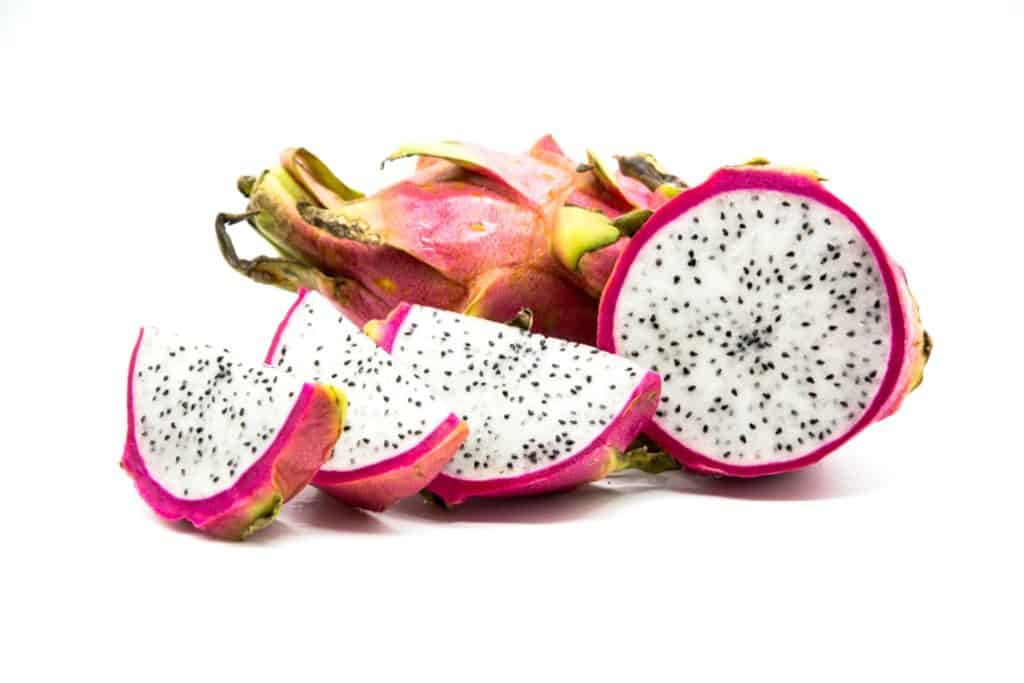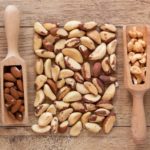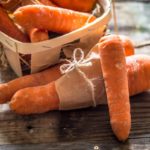
Carly Hanna
BSc (Human Nutrition and Psychology)
Note — The article was checked and updated October 2023.
A vegan diet excludes all animal products and is based solely on plant-based foods including fruits, vegetables, wholegrains, nuts/seeds, beans/legumes, and dairy and egg free alternatives.
A well planned vegan diet has shown to be protective against diet-related diseases including
- Cardiovascular disease
- Cancers (certain types)
- Type II diabetes
Along with the health benefits, there are also some certain nutrients on a vegan diet, such as calcium, iron, vitamin D and vitamin B12 that are at risk of deficiency.
To help with meal ideas and snacks on a vegan diet, this article includes a meal plan and major food sources for vegans.
What is the Vegan diet?
A vegan diet excludes all animal products such as meat, fish, poultry, dairy, eggs, and other by-products such as honey and gelatine. Not only can veganism be a diet, but also a lifestyle, by avoiding animal derived substances including leather, wool, fur, and animal skin.
The main drivers behind a vegan diet are to improve health, animal welfare and ethics, and to reduce our environmental footprint.
Animal agriculture is the highest contributing factor to carbon emissions, water pollution and deforestation, and most plant-based foods require much less resources to harvest.[1]
For example, it requires nearly 30kg of plant protein to produce 1kg of beef protein.[2] Dairy is also a major polluter to our waterways in New Zealand, and scientists are both coming up with ways to reduce this, as well as explore the demand for dairy-free alternatives.
This is especially important when dairy intolerances and allergies are on the rise.[3]
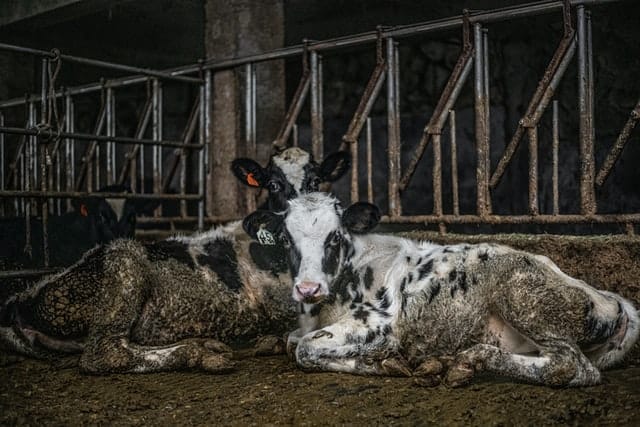
Animal welfare is much better in a New Zealand context, compared to high levels of factory farms in countries like the US. While farmers should take pride and incredible care of their livestock, this may not necessarily align with some ethics around veganism.
Dairy and eggs are certainly a rich source of nutrients, especially as they are meant to support the growth of calves and chickens, respectively; however, too much of these products have shown to increase risk of obesity and diet-related disease.
Vegan diet Statistics
The popularity of vegan diets has increased significantly over the past 10-20 years, especially in countries like the US, UK, Australia, and New Zealand.[1] In the UK, veganism increased by 360% in the past decade, and plant-based diets have also grown in popularity.
RELATED — What is a plant-based diet: Vegan or Vegetarian?
Athletes, celebrities, and social media have been major drivers in increasing awareness of veganism and young women are typically more likely to drive the vegan movement.
In New Zealand, 2% of young women identify as vegan
As of 2019, 10% of New Zealanders identify as vegetarian (3% up from 2018).[2]
Documentaries, such as Game Changers and Cowspiracy have sparked these conversations around the health and environmental benefits of a vegan diet. It is believed that the COVID-19 pandemic has also encouraged more people to reduce their meat and increase plant-based foods due to health reasons and environmental concerns.[1]
There has been a 45% increase in the sales of plant-based foods in the past two years (2020-2021).[1]
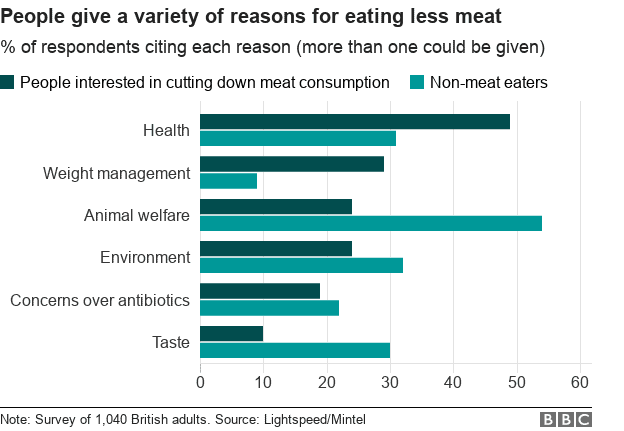
Top 10 Vegan Countries
Top contenders for the most vegan friendly countries in the world include UK, Australia, Israel, Austria, New Zealand, Germany, Sweden, Switzerland, Canada, and Ireland.
This can be based on percentage of the population, increase in veganism over the past few years, availability of vegan products in the supermarket and as catered options, and google trends.
Germany and Israel, for example, have traditionally always had the highest proportion of vegetarians and vegans based on animal ethical views.[1]
| Top 10 Vegan Countries (% of population) | |
| 1 | Mexico (9%) |
| 2 | UK (8%) |
| 3 | Poland (7%) |
| 4 | Israel (5%) |
| 5 | Canada (4.6%) |
| 6 | Denmark (4%) |
| 7 | Norway (4%) |
| 8 | Sweden (4%) |
| 9 | Brazil (3%) |
| 10 | Ireland (2 – 4.1%) |
The least Vegan Countries
Due to the culture of food, in some countries around the world we may find it hard to find vegan options. This can be due to countries having traditional foods that are animal-product based.[4]
The countries which have limited vegan options and low popularity include Algeria, Pakistan, Saudi Arabia, Nigeria, Kazakhstan, Mongolia, Venezuela, Cuba, Belarus, and Korea.
Countries with the highest % of meat consumption kg/per person (2017) | |
| 1 | Australia (114.26) |
| 2 | Argentina (112.17) |
| 3 | Brazil (99.36) |
| 4 | Israel (97.82) |
| 5 | Samoa (97.76) |
| 6 | Saint Vincent and the Grenadines (93.38) |
| 7 | Saint Lucia (91.82) |
| 8 | Portugal (90.99) |
| 9 | Canada (90.09) |
| 10 | Iceland (89.93) |
Major food sources for vegans
According to the New Zealand Ministry of Health Guidelines for Vegetarians, a variety of foods from the different vegan food groups should be consumed each day to get the nutrients you need.[5]
RELATED — The Healthy Plate Model: Essentials of Healthy Eating
Wholegrains
As a vegan, you should get at least 6 servings of breads and cereals a day; this includes rice, bread, pasta, and breakfast cereals. One serving of wholegrains include 1 slice wholemeal bread, 2 weetbix, ½ cup muesli, or 1 cup cooked pasta/rice.
Wholegrain options are best as they contain complex carbohydrates and fibre, which is better for digestion, however a vegan diet is naturally quite high in fibre as it is.
Dairy-free alternatives
Vegans should also be getting 2-3 servings of fortified dairy alternatives a day. One serving can include 1 cup of non-dairy milk (with calcium and B12) – soy milk contains the highest amount of protein, but other options include almond, coconut, rice, oat, and hemp milk.
Tofu (200g) has the same amount of calcium as 1 cup of milk
Plant-based Proteins
At least 2 servings of plant-based proteins should be consumed every day on a vegan diet. One serving can include ¾ cup of beans/legumes such as chickpeas, lentils, black, soybeans (edamame).
This can be substituted with 1/3 cup of nuts/seeds eg. peanuts, cashews, almonds, sesame seeds – which add healthy fats as well. 200g tofu or tempeh also counts as 1 serving of protein.
Fruits and Vegetables
5+ a day! You may have an increase in fruits and vegetable consumption on a vegan diet. You should aim for at least 3 servings of vegetables and 2 servings of fruit.
One serving of vegetables include ½ cup leafy greens, ½ cup cooked vegetables or 1 medium potato/kumara. One serving of fruit includes one whole apple, banana, pear, or orange or ½ cup stewed fruit/fruit salad.
Plant-based Meats and Cheeses
Plant-based meat alternatives and dairy free cheeses can be fortified with iron, vitamin B12 and calcium. However, we need to be aware that these are highly processed foods.
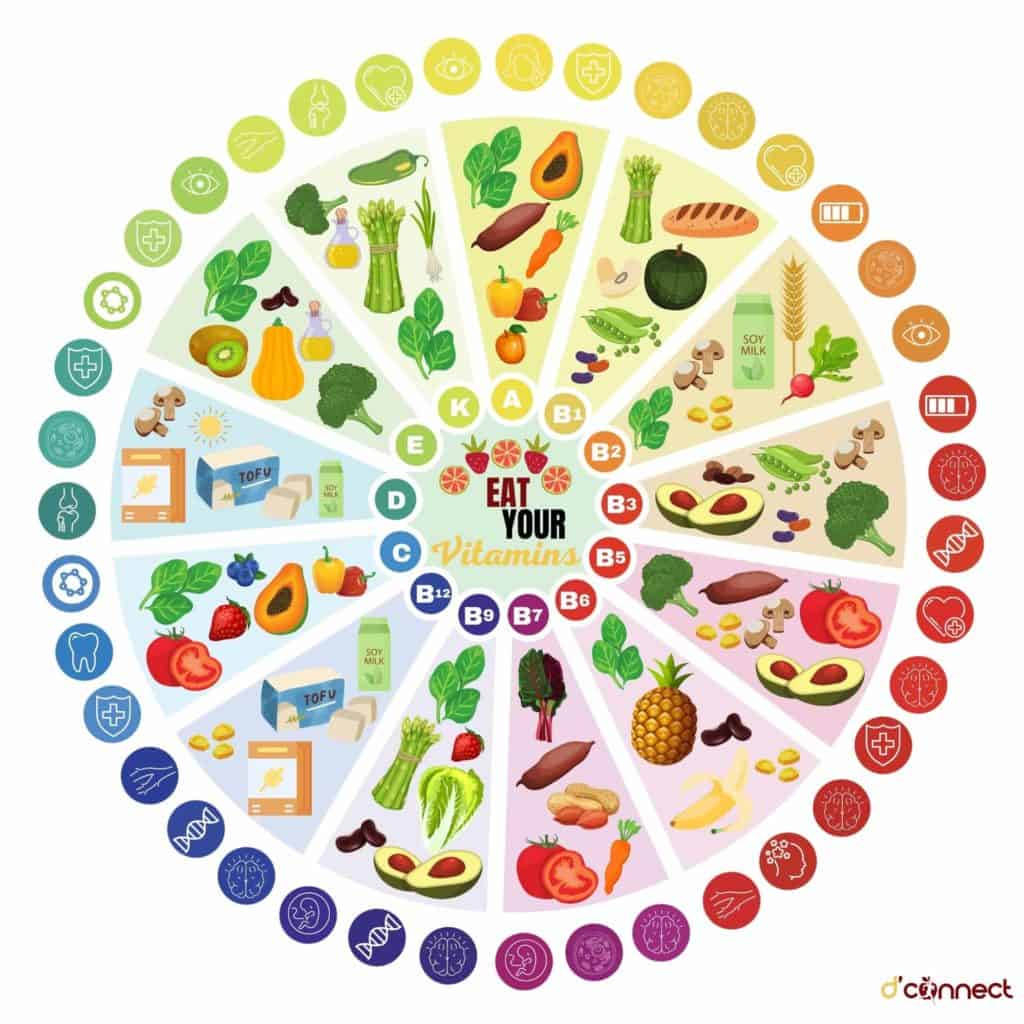
This means that most often than not, they contain higher levels of saturated fat, sugar, and/or salt.
RELATED — Plant-based products: what are they really made of?
What does a typical Vegan Diet look like?
A typical wholefoods vegan diet will include a base of wholegrains, plant proteins (soy products, nuts/seeds, beans, and legumes), a variety of fruits and vegetables, as well as the addition of fortified dairy-free milks.
A Guide to Vegan Facebook page is a great resource to help you find classic kiwi products that are vegan and includes pictures to help you find products in your local supermarket.
Vegan Meal Plan and snack ideas
Below are some example meal and snack ideas on a vegan diet, and one full day meal plan including
- Calories
- Macronutrients
- Key micronutrients
that may be lacking on a vegan diet.
Breakfast | Lunch | Dinner | Snack |
Oats/porridge Can be hot or cold (overnight oats) | Sandwich ideas – chickpea tuna, BLAT (with tempeh bacon), burgers | Chickpea satay | Fruit and nuts/seeds (e.g. apple and peanut butter) |
Cereal with calcium fortified yoghurt | Tofu quiche | Thai green tofu curry | Vegan baking |
Tofu scramble | Falafel pitas | Bean burritos with a cashew cheese sauce | Bliss balls |
Pancakes, waffles | Whole Grain salads (e.g. pasta, rice, quinoa) | Veggie burgers | Crackers, veggie sticks and hummus |
Smoothie (with soy milk, hemp seeds, banana etc) | Jacket potato with vegan chilli | Store bought convenience foods (e.g. muesli/nut bars) | |
Beans on toast | Vegan pizza | Spaghetti Bolognese with TVP or lentils | Air popped popcorn |
Chia seed pudding | Vegan tempeh sushi | Seitan “ribs” with mashed potato and veg | Dark chocolate |
Peanut butter and banana toast | Vegan pad thai noodles | Lentil dahl | Roasted chickpeas or edamame |
Example Meal Plan Day is based on a 2000 calorie diet. Depending on your nutrient requirements, this may need to be adjusted to meet your individual needs – allow for 300 calories of snacks (e.g. fruits/nuts/seeds).
*RDI = Recommended Daily Intake
*Nutrient intakes calculated via Cronometer.
Tofu Scramble
Difficulty: Easy
Ready In: 10 Minutes
Serves: 2
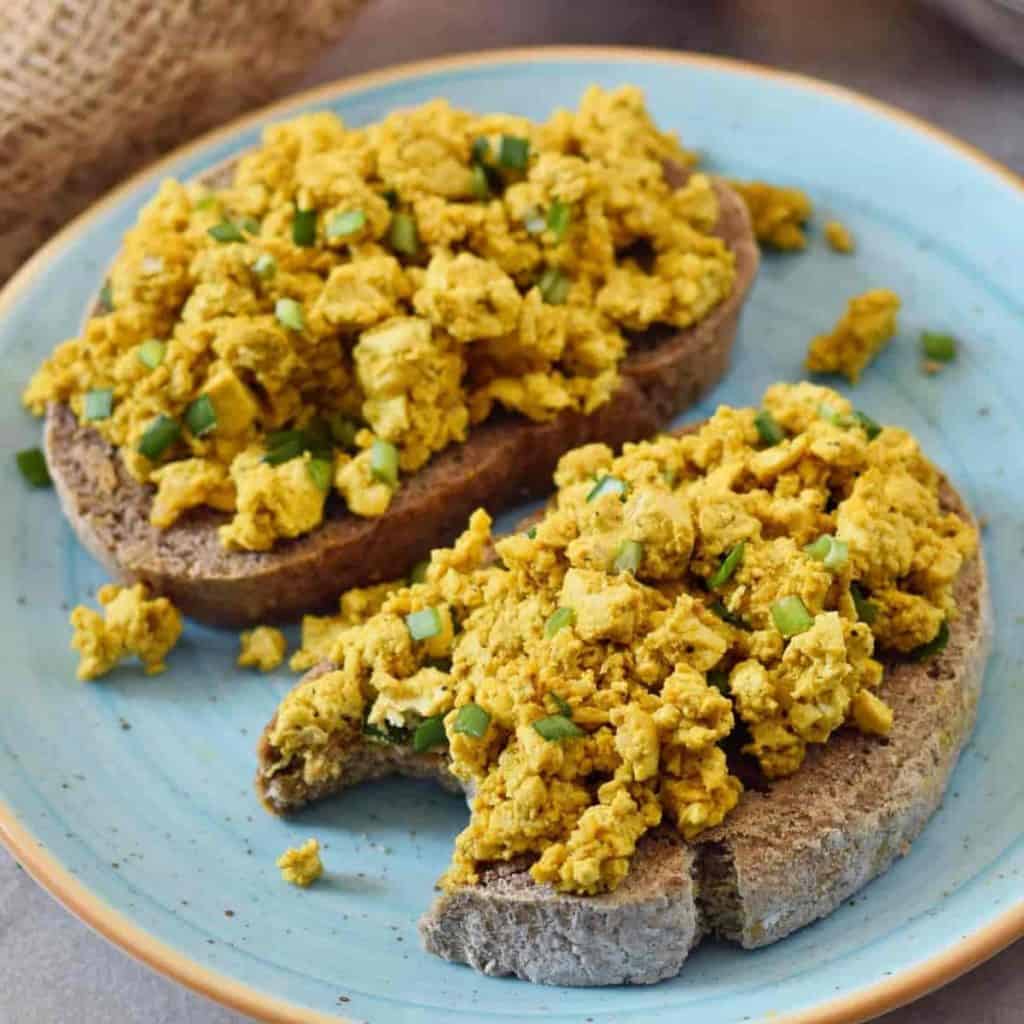
Ingredients
- 300g firm tofu
- Vegetables of your choice: my personal favourites for a hearty scramble include onion, mushrooms, capsicum, tomato, and spinach
- Approximately 1 tablespoon oil
- Spices of your choice: I love garlic powder, turmeric, paprika (about ½ teaspoon each)
- 2 slices bread (wholegrain is best), toasted with olivani spread (healthy fats)
Optional: nutritional yeast (2 tablespoons) – provides B vitamins, including Vitamin B12
Instructions
- Fry onion and/or other vegetables of choice (apart from spinach) in oil and garlic
- Once the onions are translucent, crumble up tofu with your hands and add in other spices. Fry until fragrant. Add spinach.
- Enjoy on top of toast
Nutrition Information Panel
| Per Serving [2 Serves] | |
|---|---|
| Energy | 390Cal |
| Total fat | 19g |
| Protein | 27g |
| Carbohydrates | 26g |
| Iron | 5mg (33% RDI) |
| Calcium | 5mg (33% RDI) |
| B12 | 5mg (33% RDI) |
Falafel Pitas
Difficulty: Easy
Ready In: 10 Minutes
Serves: 1
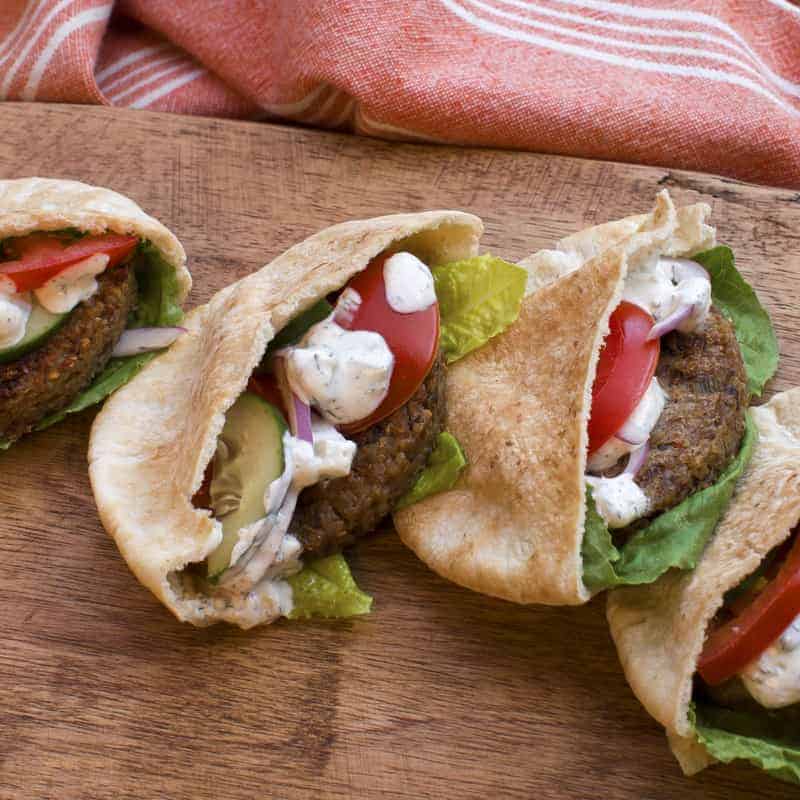
Ingredients
- 2 pita pockets
- 6 falafels (3 for each pocket)
- Vegetable fillings of choice: my personal favourites are diced tomato and/or sundried tomatoes, sliced cucumber, shredded iceberg lettuce, grated carrot, sliced black olives
- Hummus of choice (make sure it doesn’t contain dairy or eggs)
- Sweet chilli sauce
- Can also add grated dairy-free cheese (those not based of coconut oil are best as it avoids saturated fats, try get brands that are fortified with calcium)
Nutrition Information Panel
| Per Serving [1 Serves] | |
|---|---|
| Energy | 630Cal |
| Total fat | 16g |
| Protein | 22g |
| Carbohydrates | 91g |
| Iron | 8mg (55% RDI) |
| Calcium | 144mg (18% RDI) |
Burritos
Can be frozen and/or taken for lunch the next day.
Difficulty: Easy
Ready In: 10 Minutes
Serves: 6
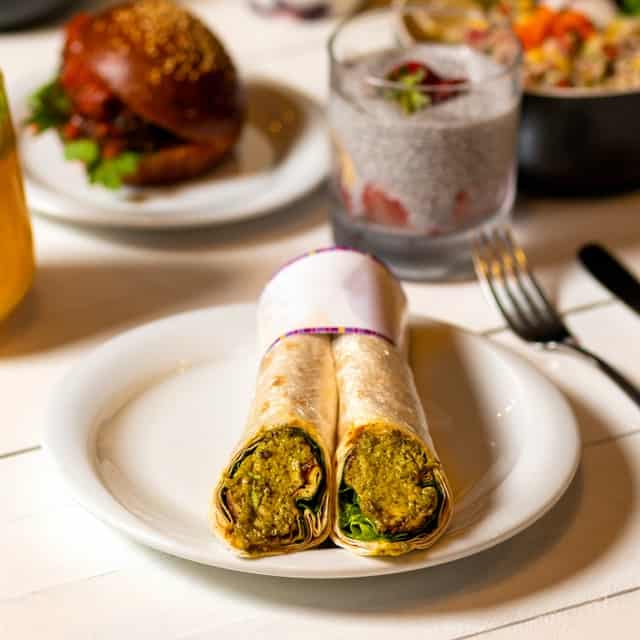
Ingredients
- 12 pack tortillas (choice of wheat, corn, GF
- Fillings of choice eg. diced tomatoes, lettuce, grated carrot, spring onion, diced capsicum, corn kernels, mashed avocado (guacamole), salsa, cashew cheese sauce (recipe below)
- 400g can black beans
- 400g can kidney beans
- 1 cup veggie mince (or 1 cup TVP + 1 cup water)
- ¼ cup tomato paste
- 400g can tomatoes, Mexican flavoured
- Spices: ½ teaspoon cumin, coriander, and chilli powder or for an easy alternative a burrito spice mix (can contain added salt and sugars)
Bliss balls
Difficulty: Easy
Ready In: 10 Minutes

Ingredients
- 1 cup almonds
- 1 cup dates (if using dried dates, soak in boiling water before blending)
Flavour combinations:
Classic: ¼ cup cocoa powder + ¼ cup dessicated coconut (for rolling in)
Peanut butter chocolate: 2 tablespoons peanut butter + 2 tablespoons cocoa powder
Can experiment and add other dried fruit, nuts, and/or seeds
- Blend almonds until they are the consistency of almond meal. Add in the other ingredients (except the coconut) and blend until combined. The texture should be just sticky enough to hold together.
- Roll in desiccated coconut and chill before serving.
Nutrition Information Panel
| Per Serving [1 Serves] | |
|---|---|
| Energy | 100cal (per serving, 1 ball) |
| Total fat | 6g |
| Protein | 3g |
| Carbohydrates | 8g |
| Iron | 1mg (4%RDI) |
| Calcium | 32mg (4%RDI) |
For more ideas about easy-to-make meals, see Recipes.
Health Benefits of a vegan diet
Vegetarians are known to have reduced health risks, compared to omnivores, though does the additional elimination of dairy and eggs provide extra health benefits?
RELATED — The Healthiest Diets: Plant-based Diet vs Omnivorous Diet (Part 1)
Vegan diets are generally higher in fibre, magnesium, folate, vitamin C and E and lower in saturated fats, omega 3’s, vitamin D and B12, calcium, and zinc.[3]
RELATED — Magnesium: For a great night of sleep
Much like a plant-based diet, a well-planned vegan diet can have multiple health benefits. However, the reasons for maintaining a vegan diet must be considered when studying the health effects.
For example, ethical-vegans adhere to a vegan diet longer, consume more soy products, and are more likely to consume processed vegan foods compared to health-vegans.[6]
The difference in diet quality of a vegan diet, for example differences in the amount of processed foods versus whole foods, will also affect the relationship between a vegan diet and the associated health benefits.
So what evidence shows these health benefits?
Reduced saturated fat intake
A vegan diet has shown to reduce our saturated fat intake and lead to having a better fat intake profile (lower cholesterol, low saturated and total fat intake, and a higher polyunsaturated fat intake).
Polyunsaturated fats are the healthy fats found in foods such as avocados, olive oil, nuts and seeds.
Monounsaturated fats, which are also a healthy fat next to polyunsaturated fats, are found in both animal and plant foods; it is also commonly found in olive oil.[7]
RELATED — Diet and the Brain: Fats
Having a reduced saturated fat intake on a vegan diet is associated with reduced risk of several diet-related diseases as explained further below.
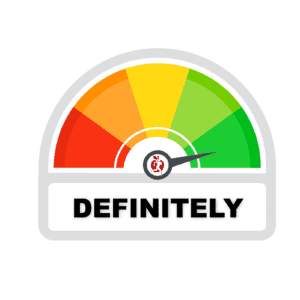
Supporting gut health and digestion
As a vegan diet focuses on eating plant-based foods such as fruits, vegetables, wholegrains, nuts and seeds, this will lead to an increased fibre intake.[8] Also, it will help foster a healthy gut, digestion, and regular bowel movements.
Compared to a vegetarian diet, vegans have a more unique gut microbiota which helps reduce the levels of inflammation in the body and protect against inflammatory diseases.[9]
Excluding all animal products, such as on a vegan diet, can support gut health, microbiota, and digestion.
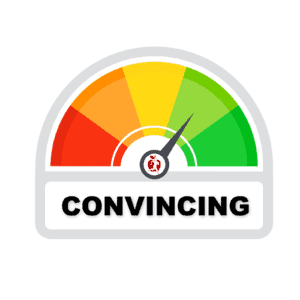
Improving sports performance
There has been increasing awareness in the media around celebrities and athletes following a vegan diet in order to help with their sports performance.
Take the likes of Serena and Venus Williams, Lewis Hamilton, Tia Blanco and Kendrick Farris – which have varied nutritional needs for their sports. Research has shown that a vegan diet can support both endurance and strength-based sports and activity.[10]
Vegan diet can support both aerobic and anaerobic performance.
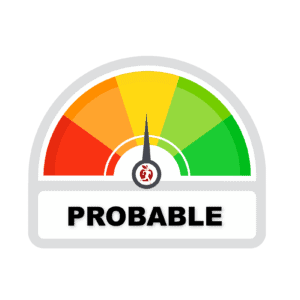
Reduced risk of some types of cancer
Not all types of cancers are associated with vegan diets, as sometimes the evidence is inconclusive. A prospective cohort study showed that vegan diets had a significant protective association against prostate cancer – with a 35% lower risk compared to non-vegetarian diets.[11]
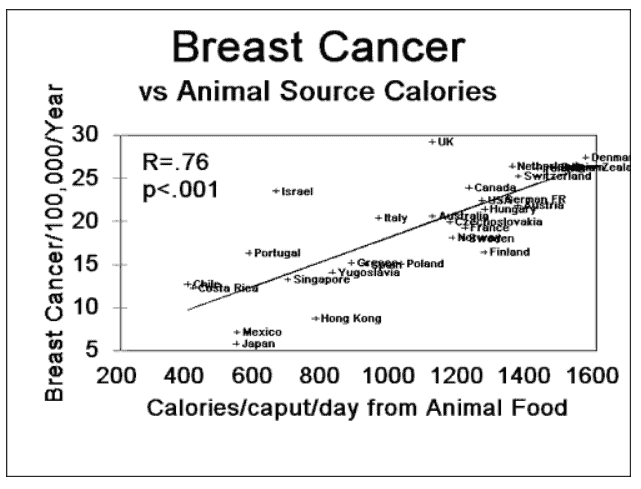
RELATED — How common is Breast Cancer and what are the Risk Factors?
Vegan diets have tumour suppressing and anti-inflammatory benefits that help prevent the growth of cancer cells; this is due to a diet rich in fibre and having higher levels of enzymes in their gut microbiota.[12]
Vegan diet can protect against colorectal cancer
While the relationship between cancer and diet is complex, evidence shows that there is a protective effect of a vegan diet against some types of cancers.

Reduced risk of cardiovascular diseases and stroke
Vegans are at reduced risk of certain cardiovascular diseases such as ischemic heart disease.[13] This is because a well-planned vegan diet is generally low in saturated fats, compared to an animal-based western diet.
RELATED — Types of Fats: Healthy and Unhealthy Dietary Fats
A diet high in fibre, which only comes from plant-based foods, produces a lower total and LDL (low-density lipoprotein) cholesterol levels – which is the bad cholesterol that contributes to arteries clogging up and subsequent heart disease.
The combination of this, along with higher levels of phytochemicals and antioxidants can also protect against stroke.

Reduced risk of hypertension
High blood pressure is associated with a diet high in animal based foods, so a vegan diet, which excludes all animal products, is more likely to maintain healthy blood pressure levels.
The amount of sodium in a diet predicts the risk of hypertension
A wholefoods vegan diet is likely to be lower in sodium than the typical western diet. Due to the better management of blood pressure, a vegan diet has been known to reduce the risk of hypertension.[13]

Reduced risk of Type II diabetes
Type II diabetes is when the body becomes resistant to insulin (a hormone that regulates blood sugar levels).
A vegan diet has shown to have a 23% lower risk of developing type II diabetes compared to a non-vegan diet.[11]
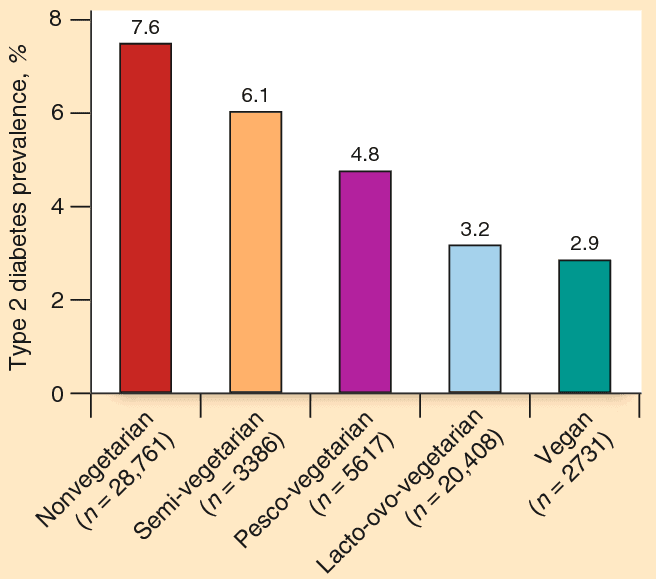
This is also significant in comparison to a vegetarian diet.[9] The mechanism of this can be attributed to reduced insulin resistance and better glucose control from a diet higher in fibre and phytochemicals.[13]
RELATED — Diabetes: Early Signs, Causes, Types and Treatment

Maintaining a healthy weight
Obesity is associated with a myriad of diet-related diseases. A vegan diet has been known to help with a reduced risk of obesity and maintaining a healthy weight.
The combination of eliminating meat consumption and increasing fruit and vegetable consumption leads to better metabolic function and lower levels of inflammation.[9] It is inflammation that can be a critical component of chronic diseases.
Not only does a vegan diet promote a healthy gut, but it can foster the relationship between the newly discovered gut-brain axis. This has both mental and physical health benefits.
*It is important to note that weight doesn’t necessarily correlate with health.
RELATED — What is HAES: Does it promote obesity and is it healthy?

Mental health
Some evidence shows that a wholefood vegan diet can reduce the risk of mental health issues such as anxiety and depression.
A higher quality vegan diet has shown to be protective against depressive symptoms, for those who don’t already live with depression, while no association between diet quality and depressive symptoms was found for those with depression.[14]

Increased spirituality and overall well-being
Spirituality isn’t necessarily solely religious beliefs. It can be about our outlook on life and if our actions reflect our values.

Since a vegan diet and lifestyle is typically based on values around personal health, animal welfare, ethics, and sustainability, this can establish a greater sense of connection with food and the environment. It can support our spirituality and go towards a greater sense of health and well-being.
Health Risks of a vegan diet
There are always going to be risks with restricting any type of food – whether that be food groups such as meat, dairy and eggs, or macronutrients (e.g. keto and paleo when reducing carbohydrates).
Vegans are more likely to have nutritional deficiencies than the typical western dieters
While a vegan diet can meet all our nutritional needs, it is important to note that some animal-based foods can sometimes contain higher quantities of certain vitamins and minerals than their plant-based counterparts.
Knowing about certain nutrients in different foods can help us benefit the most from a vegan diet and optimize our health.
Before you decide on any kind of diet, it’s important to have all the information because a diet needs to be properly planned.
RELATED — Health Risks of Long-term Vegan and Vegetarian Diet (Part 1)
Low energy
As vegan foods are often high in fibre and lower in calories, it is common to not get enough energy in the form of calories when transitioning to a vegan diet. This could lead to a decrease in energy levels.
To optimize your energy, making sure you are eating enough calories for your requirements is important!
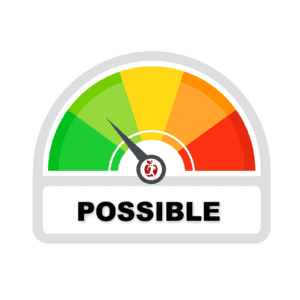
Leaky gut
Antinutrients, such as tannin and phytates, are compounds found in plants that can reduce the body’s ability to absorb certain nutrients.
These compounds are commonly found in legumes and grains, which are a staple of a healthy vegan diet. Fermenting, soaking and sprouting our plant-based foods can help reduce the antinutrients and help prevent a leaky gut.[15]
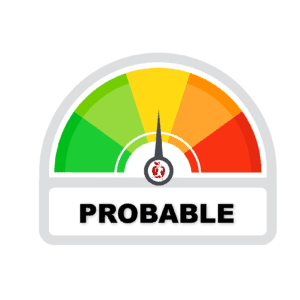
Hormone disruption
There is a common myth that increased soy consumption can disrupt hormones and lead to increased risk of diseases such as breast cancer. This is especially so considering soy products are a great source of protein and calcium in vegan diets.
However, there is little scientific evidence behind these claims and the results are hence inconclusive.[16]
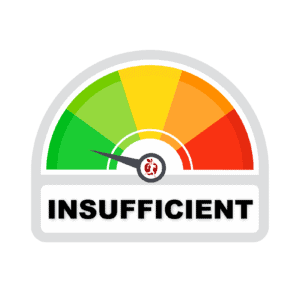
B12 deficiency
Vitamin B12 is produced by bacteria, not plants or animals and is found in high quantities in animal products.[8] Because of this, vegans are more at risk of a B12 deficiency.
Vegan sources of Vitamin B12 include fortified non-dairy milk, yeast products, including marmite and nutritional yeast.[7,16]
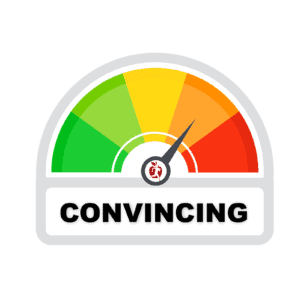
Zinc deficiency
Zinc is commonly found in meat and seafood such as oysters, crab, beef and pork. It is important for growth and the immune system.
Plant based-sources include some legumes, such as chickpeas, and nuts/seeds, such as cashews.[17]

Decline in Omega-3
Omega-3 is an essential fatty acid that is needed for skin, hair, and nail health. As omega-3 are commonly found in seafood, vegetarians and vegans are more likely to be low in omega 3’s.
In order to avoid this, plant-based sources containing omega 3’s include flaxseeds, canola oil and walnuts.[18]

Increase in Omega-6
Omega-6 are found abundantly in several plant foods including nuts, seeds and whole grains. Because a vegan diet is based on these foods, it is common to have an even higher intake of omega 6.
Hemp seeds have the best omega 6 and omega 3 ratio of approximately 3:2, which is optimal for health.

Increased risk of depression
There is evidence both for and against a relationship between vegan diets and risk of depression. Some studies have shown that a vegan diet is associated with an increased risk of developing depression, based on the risk of nutrient deficiencies.[19]
It is important to note that while diet is one factor to our mental health, the factors contributing to depression and anxiety are complex.
RELATED — Introduction to: Depression

Increased risk of anxiety
Eating can be a big part of social gatherings and an expression of culture.
Having any dietary requirements, such as being vegan, can interfere with these occasions and it can be expected to experience a little social anxiety around being judged by others, not being accepted, or going against the norms.[20]
Our mental health is just as important as our physical health.
RELATED — Mental Health: The more we talk about it, the easier it gets

Increased risk of developing Orthorexia
Orthorexia is an eating disorder that is characterised as restricting foods that are deemed “unhealthy” and only eating foods that are “good for our health”.
Being vegan may be a way of restricting food intake, and it is okay to be concerned about yourself and/or your loved one’s eating behaviours.
As vegans are more likely to be health conscious, it is important to note that there is a difference between ethical/sustainability/health reasons and orthorexic tendencies.[19]
RELATED — Understanding Eating Disorders – History, Types and Statistics

Iron deficiency
We can still reach our iron requirements when substituting meat for plant-based proteins. Animal products contain haem iron, which is more absorbable than plant-based sources of non-haem iron.[21]
Vegan sources of iron include beans/legumes, spinach, certain wholegrains such as oats, cashews and combining these with vitamin C rich foods (such as tomatoes, broccoli, oranges etc) can increase the absorption.
RELATED — Vitamin C: Immunity and Collagen booster

Calcium deficiency
Different non-dairy milks vary in their nutrient compositions although most have the same amount of calcium per 100ml as cows milk.
RELATED — Calcium (for healthy bones, teeth and heart)
It is important to note that not all dairy-free cheeses and yoghurts are fortified with calcium. Other plant-based sources of calcium include soy products (tofu and tempeh), sesame seeds (including tahini), and dark green leafy vegetables.

Vitamin D deficiency
Vitamin D can not only come from the sun but also our diet. Vegans are more likely to have a lower vitamin D intake as vitamin D is often found in animal-based foods.[7,16]
RELATED — Vitamin D: The sunshine hormone for stronger bones

Some non-dairy milks are fortified with vitamin D which are a great option for vegans. For the general population as well, it is recommended to take a supplement when sun exposure is limited.
Does eating a vegan diet mean longer life?
There are several different ways we can measure longevity, and there are also ways we can measure quality of life and years of life lost due to illness and disability.
Diet-related diseases are becoming more prevalent
As shown in the health benefits above, a well-planned vegan diet can reduce the risk of developing diet-related diseases and support a better sense of well-being. This will contribute to living a longer, more fulfilling life.
Any progress towards a more plant-based diet has shown to be correlated with better longevity.
A mostly plant-based diet, including a vegan diet, could prevent 11 million deaths a year as well as support feeding a growing population sustainably for the health of the planet and our health.[11]
Vegans are generally more health conscious, so may also engage in other life-extending health behaviours such as exercise, sleep, lower stress levels which can account for up to a 10 year additional life expectancy.[22]
Related Questions
1. Why are you gaining weight while on a vegan diet?
Gaining weight comes down to a lot of factors, for example:
- the quality of our diet
- our energy intake versus our energy output
- our genetics
A vegan diet that is made up of processed foods may cause you to gain weight, compared to being on a wholefoods diet which will help maintain your weight and live a healthy lifestyle.
2. Is a vegan diet healthy during pregnancy?
Whether you are vegan or not, it is important to make sure that you are meeting all nutrient requirements for the health of the mother and the offspring.[23]
3. Do vegan diets cause gut microbiota to change?
Our gut microbiota may change as a result of increased fibre in the diet in order to keep up with metabolism processes. This means that vegetarians and vegans have more healthy bacterial species in their gut.
As a wholefood vegan diet is generally higher in fibre compared to the standard western diet, this can help the prevention of diet-related disease and support a healthy gut microbiome.[12]
Having passion for mental health and nutrition, Carly’s goal is to become a registered psychologist with a focus on self-care – food, exercise, and sleep. She has a special interest in various mental health disorders, plant-based diets, and the relationship between food and mood.
Through evidence-based research, holistic approach to health and personal experience, Carly hopes to empower others’ well-being.
Carly is a part of the Content Team that brings you the latest news here at D’Connect.
References
(1) Sentient Media, Veganism is more than just a fad. Online. 2021 Apr;28, Accessed 3/1/22. Retrieved from https://sentientmedia.org/increase-in-veganism/
(2) Health Navigator NZ, Vegetarianism and Veganism, 2021 Sep;17, Accessed 3/1/22. Retrieved from https://www.healthnavigator.org.nz/healthy-living/v/vegetarianism-veganism/
(3) Craig WJ. Health effects of vegan diets. The American journal of clinical nutrition. 2009 May 1;89(5):1627S-33S. Retrieved from https://academic.oup.com/ajcn/article/89/5/1627S/4596952?login=true
(4) Huff Post, The 13 Worst Countries to Visit as a Vegan, Online, 2014 Apr;3, Accessed 4/1/22. Retrieved from https://www.huffpost.com/entry/vegan-travel-food_n_4985590
(5) Ministry of Health. (2012). Eating for Healthy Vegetarians | Hu ngā kai tōtika mō te a nga puka-huawhenu. Retrieved from https://www.healthed.govt.nz/system/files/resource-files/HE1519_Eating-for-healthy-vegetarians.pdf
(6) Radnitz C, Beezhold B, DiMatteo J. Investigation of lifestyle choices of individuals following a vegan diet for health and ethical reasons. Appetite. 2015 Jul 1;90:31-6. Retrieved from https://www.sciencedirect.com/science/article/abs/pii/S0195666315000732
(7) Clarys P, Deliens T, Huybrechts I, Deriemaeker P, Vanaelst B, De Keyzer W, Hebbelinck M, Mullie P. Comparison of nutritional quality of the vegan, vegetarian, semi-vegetarian, pesco-vegetarian and omnivorous diet. Nutrients. 2014 Mar;6(3):1318-32. Retrieved from https://www.mdpi.com/2072-6643/6/3/1318
(8) McManus, K. D. (2021). What is a plant-based diet and why should you try it. Harvard Health Blog. Retrieved from https://www.health.harvard.edu/blog/what-is-a-plant-based-diet-and-why-should-you-try-it-2018092614760
(9) Glick-Bauer M, Yeh MC. The health advantage of a vegan diet: exploring the gut microbiota connection. Nutrients. 2014 Nov;6(11):4822-38. Retrieved from https://www.mdpi.com/2072-6643/6/11/4822
(10) Mósesson IE. Nutritional impact on athletic sports performance: the difference between animal-based and plant-based diets (Doctoral dissertation). Retrieved from https://skemman.is/bitstream/1946/37654/6/BS%20-%20ritger%C3%B0.pdf
(11) McManus, K. D. (2020). With a little planning, vegan diets can be a healthful choice. Havard Health Blog. Retrieved from https://www.health.harvard.edu/blog/with-a-little-planning-vegan-diets-can-be-a-healthful-choice-2020020618766
(12) MicrobiomePost, How a vegetarian diet influences the gut microbiota 2020 Dec;18, Accessed 4/1/22. Retrieved from https://microbiomepost.com/how-a-vegetarian-diet-influences-the-gut-microbiota/#:~:text=The%20team%20found%20that%20the,beneficial%20metabolites%20in%20the%20gut.
(13) Vesanto, M., Craig, W., & Levin, S. (2016). Position Paper Position of the Academy of Nutrition and Dietetics: Vegetarian Diets. Journal of the Academy of Nutrition and Dietetics, 116(12), 1970–1980. Retrieved from https://doi.org/10.1016/j.jand.2016.09.025
(14) Lee, M.F., R. Eather, and T. Best, Plant-based dietary quality and depressive symptoms in Australian vegans and vegetarians: a cross-sectional study. BMJ Nutrition, Prevention & Health, 2021: p. E000332.
(15) Healthline. How to Reduce Antinutrients in Food. 2017. Retrieved from https://www.healthline.com/nutrition/how-to-reduce-antinutrients#TOC_TITLE_HDR_5
(16) Key TJ, Appleby PN, Rosell MS. Health effects of vegetarian and vegan diets. Proceedings of the Nutrition Society. 2006 Feb;65(1):35-41. Retrieved from https://www.cambridge.org/core/journals/proceedings-of-the-nutrition-society/article/health-effects-of-vegetarian-and-vegan-diets/1B1F779BC279BE2F632C48F5BDB4DF64
(17) Murphy EW, Willis BW, Watt BK. Provisional tables on the zinc content of foods. Journal of the American Dietetic Association. 1975 Apr 1;66(4):345-55. Retrieved from https://europepmc.org/article/med/1090644
(18) Tuso P, Stoll SR, Li WW. A plant-based diet, atherogenesis, and coronary artery disease prevention. The Permanente Journal. 2015;19(1):62. Retrieved from https://www.ncbi.nlm.nih.gov/pmc/articles/PMC4315380/
(19) Meesters, A.N. and Y. Meesters, Vegetarian or Vegan Diet: Stimulating or at Risk to Mental Health?, in Veganism-a Fashion Trend or Food as a Medicine. 2020, IntechOpen. Retrieved from https://www.intechopen.com/chapters/74243
(20) Ocklenburg, S. and J. Borawski, Vegetarian diet and depression scores: a meta-analysis. Journal of Affective Disorders, 2021. 294: p. 813-815. Retrieved from https://doi.org/10.1016/j.jad.2021.07.098
(21) Anderson GJ, Frazer DM, McKie AT, Vulpe CD, Smith A. Mechanisms of haem and non-haem iron absorption: lessons from inherited disorders of iron metabolism. Biometals. 2005 Aug 1;18(4):339-48. Retrieved from https://link.springer.com/content/pdf/10.1007/s10534-005-3708-8.pdf
(22) Fraser GE, Shavlik DJ. Ten years of life: is it a matter of choice? Archives of internal medicine. DOI: 2001;161(13):1645-52. Retrieved from https://jamanetwork.com/journals/jamainternalmedicine/article-abstract/648593
(23) Sebastiani, G., et al., The effects of vegetarian and vegan diet during pregnancy on the health of mothers and offspring. Nutrients, 2019. 11(3): p. 557. Retrieved from https://doi.org/10.3390/nu11030557

